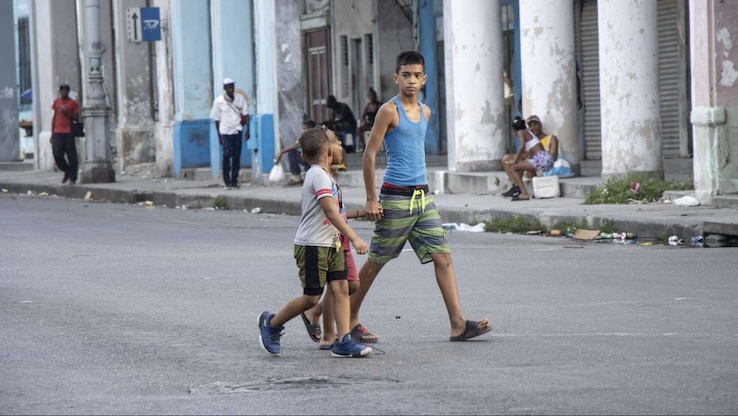The migration crisis and the increase in violence are seriously affecting the development of all Cubans, but their effects are even worse on children and adolescents. DIARIO DE CUBA talked with three experts to inquire about the effects of these phenomena on minors.
"The Cuban people are emigrating as a response to the desperate situation in the country," sociologist Helen Ochoa Calvo, a resident of the city of Cienfuegos, told this newspaper. "It is the only solution left for those who can and want to live a dignified life through their work, the regime has left them with no other. There have been heart-wrenching examples of separations of parents and children ever since the triumph of the Revolution, but no crisis has been as distressing as the one we are witnessing. Not only are parents leaving their younger children behind, they're also leaving their older parents."
Aurora García Morey, a doctor in Psychological Sciences specializing in working with minors, and a professor at the University of Havana, specified: "Every departure has a negative impact, both on those who stay, and on those who leave. If a child or adolescent who has the structure of a home and a system of life suddenly loses one of the members of that system, of course that can have a negative impact on the emotional level."
"That's very upsetting," adds Loraine Morales Pino, a Cuban PhD in Migration Studies residing in Mexico. "You always have to keep in mind that if adults are affected by the migratory processes, just imagine children. Many families have recently migrated. The issue of migration in Cuban minors is one that deserves to be addressed more by academia.
In previous statements to DIARIO DE CUBA, Morales defined the set of experiences experienced by minors involved in migration processes. Now she emphasizes that concept: "I am interested in recovering a term that has spread, and that is migratory mourning, which involves the changes that minors experience after migrating or seeing family leave. It is necessary to investigate how children deal with the changes in practices around them, how they leave behind, for example, their grandparents, figures that in Cuba play prominent roles in families. We have to explore how they experience those grieving processes."
Regarding the increase in violence and citizen insecurity, Ochoa, the Cienfuegos sociologist, points to the Cuban regime's responsibility: "Cuban families are divided not just by massive emigration. They have been unhappily subjected to a fierce ideological bombardment that makes it very difficult for them to shed the cultural patterns imposed by Communism: double standards, intransigence, intolerance, vulgarity and violence in response to those who think differently."
In July the leader of the ruling Communist Party, Miguel Díaz-Canel, acknowledged before the Cuban Parliament the increase in rates of violence and insecurity, as there have been many reports by victims of robberies and murders, many of them minors.
García, a psychologist specialized in children, talks about the effects that such events can have on children and adolescents: "When there are tensions or violence, and certain processes in their environment have been handled poorly, logically, children can transmit worrying signals. At times those issues are not handled properly by families. Generally, the experience of violence always generates harm and damage to minors. A child is like a sponge that absorbs everything happening around it. Violence can alter children's interests and way of expressing themselves. The symptoms can vary, and are determined following a psychological evaluation process."
Given the current situation, Ochoa upholds the role of the family as a bastion for children and young people: "The role of the family is irreplaceable in the face of the total crisis affecting Cuban society. The State has proved incapable of providing the people with security of any kind. The family, then, becomes the greatest refuge for the transmission of values to forge the citizens of tomorrow."
